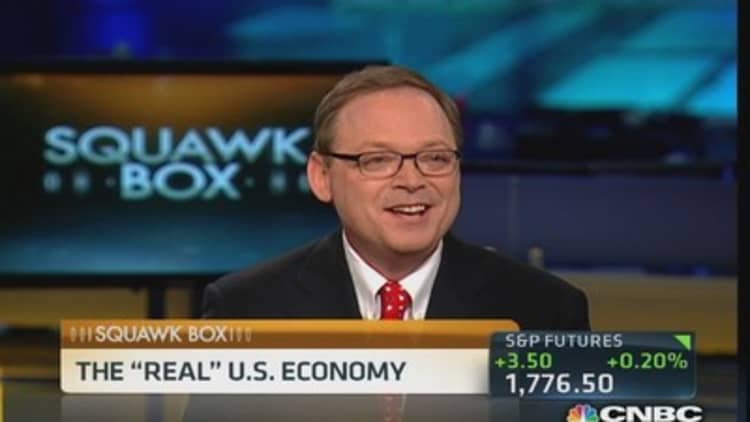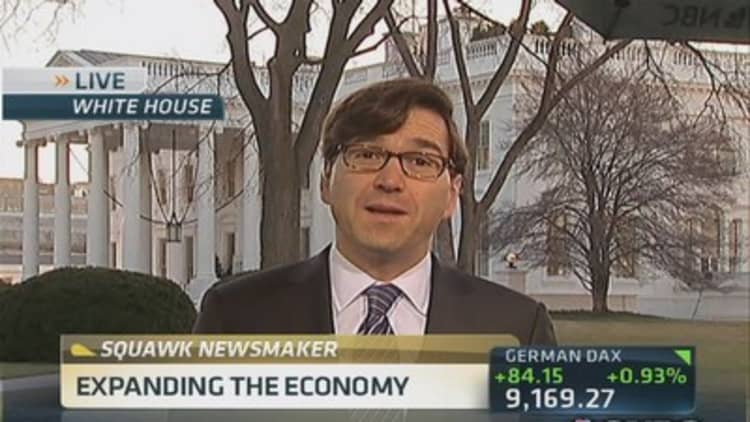
The U.S. economy is being held back by the uncertainty of consumers, International Paper Chairman and CEO John Faraci told CNBC on Wednesday.
"It feels like 2 percent GDP growth," he estimated in a "Squawk Box" interview, adding the economy also appears to be uneven and choppy.
"One month [consumers] feel good. One month they feel anxious," Faraci said. "As long as the consumers feel that way, I think you're not going to see the kind of sustained consumer spending it's going to take to get this economy going, which is going to create the jobs."
But he said he believes Federal Reserve policymakers will "get it right" when it comes to their part in spurring growth and whether to taper the central bank's $85-billion-a-month bond-buying program. The Fed concludes its two-day December meeting Wednesday.
(Read more: Preview of a taper? Mortgage apps plunge)
As the head of the paper and packaging company, Faraci is in good position to evaluate the economy because IP does big business in corrugated cardboard boxes. Up to 95 percent of all goods are shipped in those brown containers.
Consumer spending—which accounts for about two thirds of the economy—appeared a "little bit better" in November and at the start of the holiday shopping season, he said.

Jason Furman, chairman of the White House Council of Economic Advisers, characterized the economy as ending the year strong.
In response to a question from Faraci about consumer confidence on "Squawk Box," Furman explained why he believes Americans have reason to be optimistic. "We've been through a many-year process of deleveraging. And if you look at interest payments as a share of income, they're now at very low levels. I think that's one of the best signs that consumers are poised to spend more and have a stronger year in 2014."
(Read more: Obama advisor: Check out 3.7% private sector growth)
Both Faraci and Furman stressed that Americans need more money in their pockets to really start tipping the scale. "Either they keep more of what they make or we get wage growth, and that's not going happen until the economy gets better," Faraci said.
President Barack Obama also wants a lower corporate tax rate, said Furman. The president wants to broaden the tax base to pay that, but he also wants to "make sure people share in growth with things like the minimum wage," he said.
"Businesses need more than tax cuts. They also need sound regulations," Furman continued. "The type of regulations we had and the way they were enforced were one of the things that contributed to the fiscal crisis in 2007 and 2008."
He contended that a "certain amount of safety, soundness, predictable rules of the road—those are important for business decisions, too."
While agreeing that taxes and regulations are pieces of the puzzle, Faraci said the most important thing the private sector needs is demand from consumers. "I'm not a pessimist about the economy. I think this economy has the potential to grow at 3-plus percent. If it does, it solves a lot of problems. It makes the whole economic pie bigger."
Looking at what may help fuel economic growth and consumer spending, he said he views the bipartisan budget deal in Washington, the rebound in housing and the strength in the stock market as positive signs.
—By CNBC's Matthew J. Belvedere. Follow him on Twitter @Matt_SquawkCNBC.


